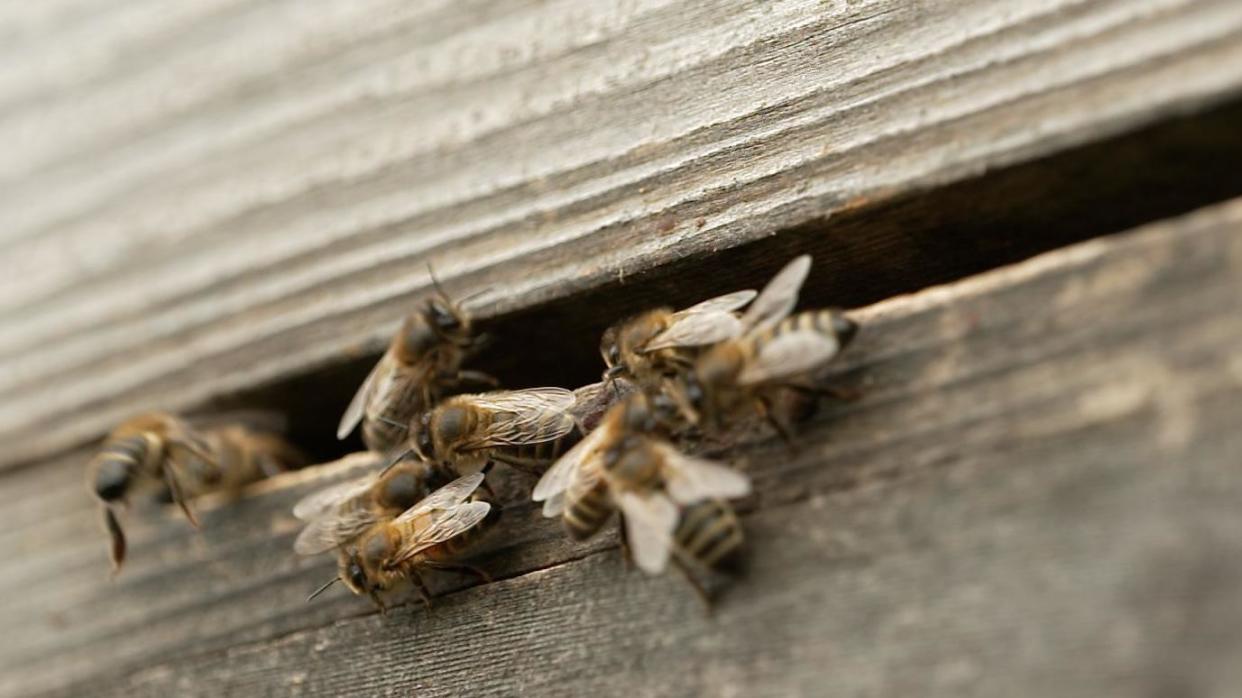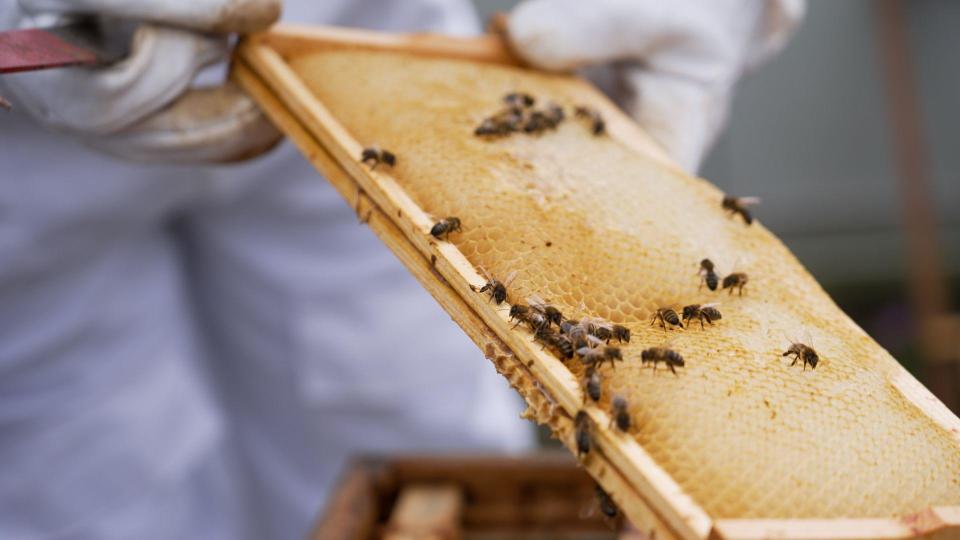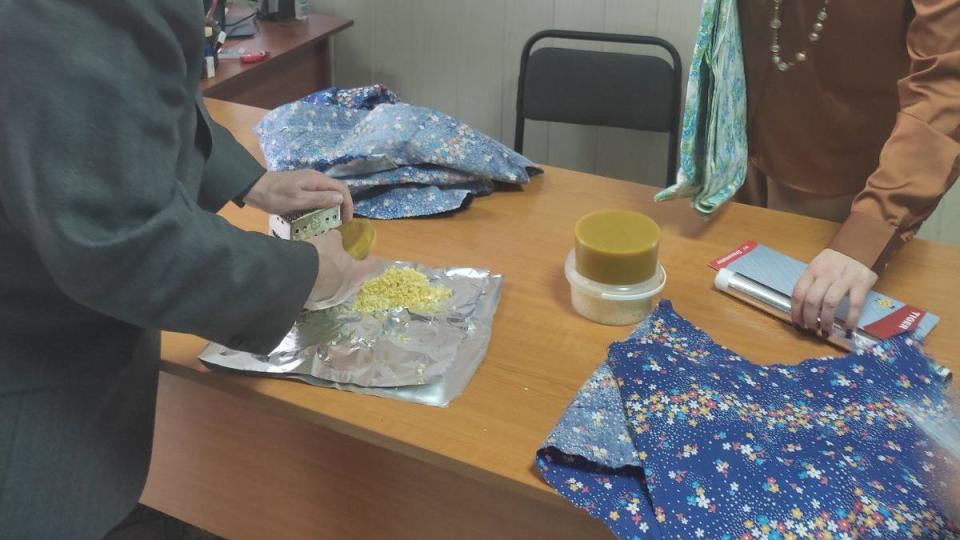How bees could help war-hit families in Ukraine

Beeswax could be crucial to help preserve food in war zones like Ukraine, according to researchers.
UK scientists have been helping beekeepers in the besieged country to develop new wax wrappings for perishable foods amid Russian attacks.
Russia has targeted Ukraine’s energy infrastructure in recent months, causing blackouts, meaning there may be no refrigeration in some areas during the summer.
Ukraine is the largest producer of honey in Europe and researchers based in Cardiff have been analysing individual beehives to decide which could offer the best protection.
"People will know Ukraine is not in a great place at the moment," said Professor Les Baille, from Cardiff University.
"As everyone knows, food goes off very quickly if there’s no way of preserving it.
"Using a beeswax wrap that can kill bugs, seems like a natural way of addressing this issue."
The research team have created different "recipes", which mix together combinations of ordinary items still likely to be available in war zones, to create wraps which can preserve food.
They have been able to test different combinations to come up with some of the most potent for food preservation.
"The magic is in the mixture," said Prof Baille.
He said "a piece of cloth or even paper" is combined with beeswax and other naturally occurring antimicrobial plants, like sage, to form the wraps.

"Beeswax wraps are traditionally used to extend the life of sandwiches, but they can be used for other products as well," he added.
As part of the effort to help Ukrainians preserve their food for as long as possible, the team at Cardiff University have been working with academics and beekeepers in the country to test beehives around Ukraine to see which are best suited to the task.
"They have lots of beeswax and they have lots of bees," said Prof Baille.
"By finding the right wax that has the right properties, you have the chance to extend the life of your food further.
"That's particularly important when you don’t have refrigerators and you don't have a source of power.
He said it would not keep things fresh indefinitely, but could extend the life for a couple of days.

Ukrainian counterparts at Kharkiv Polytechnic Institute have been spreading the information from Cardiff University online and across social media, in the hope Ukrainians will be able to try it for themselves this summer.
Kharkiv has seen heavy fighting in recent weeks.
"The situation in conflict zones and near the frontline is very hard.
"People there have no electricity or very often there are blackouts in these regions," said Dr Yuliia Yudina, from the National University Pharmacy at Kharkiv Polytechnic Institute.
She said the power cuts had led to a "significant" amount of food waste.
"[The wrap] can be used for bread to keep it fresher, fruit and vegetables to keep them fresher."
Prof Baille and his team of microbiologists hope their work with Ukraine will help others in war zones around the world harness the natural antibiotic properties of honey - which was once used by civilisations like Ancient Greece.
"We've actually had a response from the military in Ukraine, picking up this idea.
"For us, if we can just do a small thing to make this better, from our safe homes, then it’s worth it."
For more on this story, watch Wales Live on BBC iPlayer.


